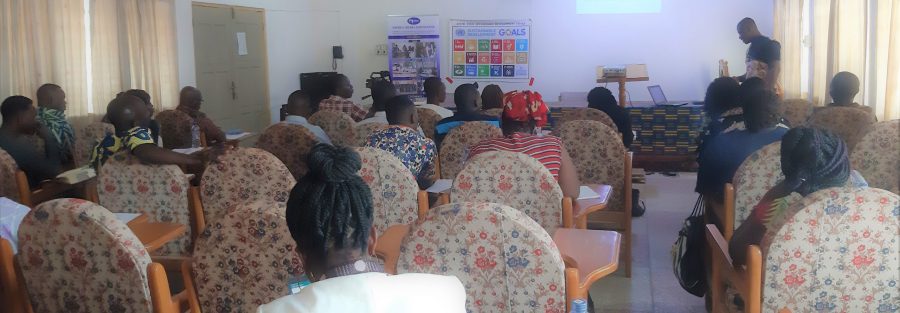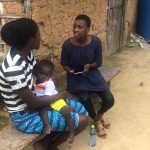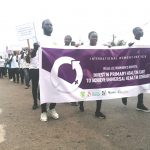ARHR in partnership with Women, Media and Change (WOMEC) has organized a community interface meeting and media training on women, newborn, children and adolescent wellbeing (WNCAW) in the Volta Region with support from our CBO partner; Volta Educational Renaissance Foundation (VEREF).
The meeting was to disseminate findings of a scorecard assessment which was done in some health facilities in the South Dayi district of the Volta Region and empower the media with the skills to report on issues relating to WNCAW. The assessment of these health facilities was part of activities to implement a project, with funding from the International Development Research Centre (IDRC), geared towards catalyzing leadership to improve reproductive, maternal, newborn, child and adolescent health outcomes in five (5) West African countries.
Present at the meeting were the District Coordinating Director, District Director of Health, District Director of Social Welfare and Community Development, District Planning Officer, District Health Promotion Officer, Public Relations Officer of the NHIS, Heads of the assessed health facilities, Assembly members, Community members and the media.
In his welcome address, the District Coordinating Director, Mr Nathaniel Adzotor, indicated that he was pleased to have an assessment of this kind take place in his district and believed that the assessment will help to improve health services in the district. He welcomed the outcome of the assessment and promised to work with stakeholders concerned to address gaps identified by the assessment.
Also, the District Director of Social Welfare and Community Development, Madam Emma Adom, in her remarks urged stakeholders present to be concerned with the health care of vulnerable groups in the district and work to ensure these people are protected at all times.
The Executive Director of WOMEC, Dr Charity Binka, thanked participants for honouring the invitation for the meeting and emphasized the need to use media for change. She believed that when the media is equipped with the right information, they could help advocate for change. Dr Binka hoped that at the end of the meeting, both service providers and clients will work together to ensure improved health outcomes.
The findings of the scorecard assessment, which used the following indicators; accessibility of health care facilities and services, affordability of services and quality of services, were presented to participants. A general discussion on the findings were had and recommendations were made to address the gaps identified by the assessment.



